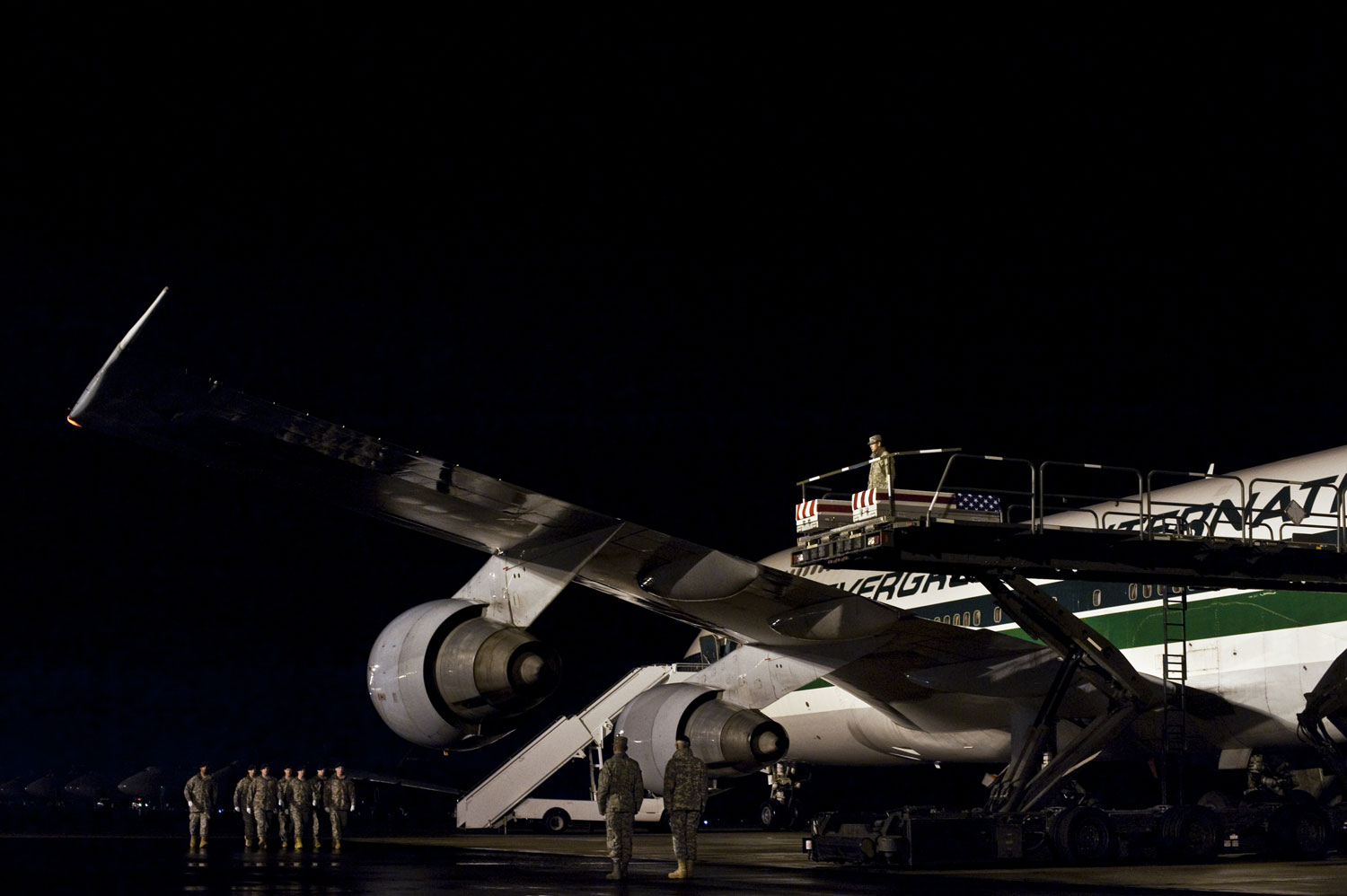
On Feb. 27, Staff Sergeant William “Seth” Ricketts, 27, was killed by small-arms fire in Badghis province, a remote and previously uncontested area of western Afghanistan that has seen an upsurge of violence. On his fifth tour since joining the Army the day after 9/11, he became the 997th U.S. casualty in the war, according to Pentagon records.
The temporary coffin carrying Ricketts arrived at Dover Air Force Base on March 2. (The body of Specialist Ian Gelig, also killed in Afghanistan, arrived on the same plane.) Dover is the first stop for dead soldiers returning from Iraq and Afghanistan, and their families are often on hand to attend a brief, solemn ceremony as the flag-wrapped cases are removed from the plane and brought to the mortuary. The ban on media coverage of these transfers, in place during the Bush Administration, was lifted in February 2009, when Secretary of Defense Robert Gates ruled it should be up to the families of the fallen to decide whether the press should be allowed into their private moments. Approximately 55% of families agree to permit media coverage, but although dozens of journalists attend the early transfers after the ban was lifted, there now seems to be little interest in them.
Four days after arriving at Dover, Ricketts’ body was flown to Corinth, Miss. He had grown up in nearby Glen (pop. 300). Ricketts left behind his wife Rosie and two young children, with another due in September. In her father’s home, Rosie remembered her life with Ricketts. They had met in church: she was the preacher’s daughter; Ricketts was intriguing, with his spiky hair and goatee. The day before he left for basic training, they confessed their feelings for each other. When he came back, he asked her father for permission to date Rosie. They married in 2005. After he’s come back from several difficult tours, they tried to have a conversation about what to do if he was killed. He told her, “I’m invincible. Nothing’s going to happen to me.”
Most of Ricketts’ friends are now out of the military having chosen to return to civilian life at the end of their enlistment. When his best friend, Kevin Allen, decided to leave the military, Ricketts demurred, saying, “What else could I do? I’m not going to bag groceries. I’m not going to wait on someone hand and foot.”
Hundreds attended the viewing, the memorial service and the funeral at the Corinth National Cemetery. Others lined the convoy route, waving American flags, with their hands on their hearts. As the last light of day faded and hundreds of flowers were placed on the freshly dug grave, Ricketts’ 3-year-old son Aiden posed like a ninja as his grandmother snapped pictures. —Peter van Agtmael
Photographs by Peter van Agtmael—Magnum for TIME
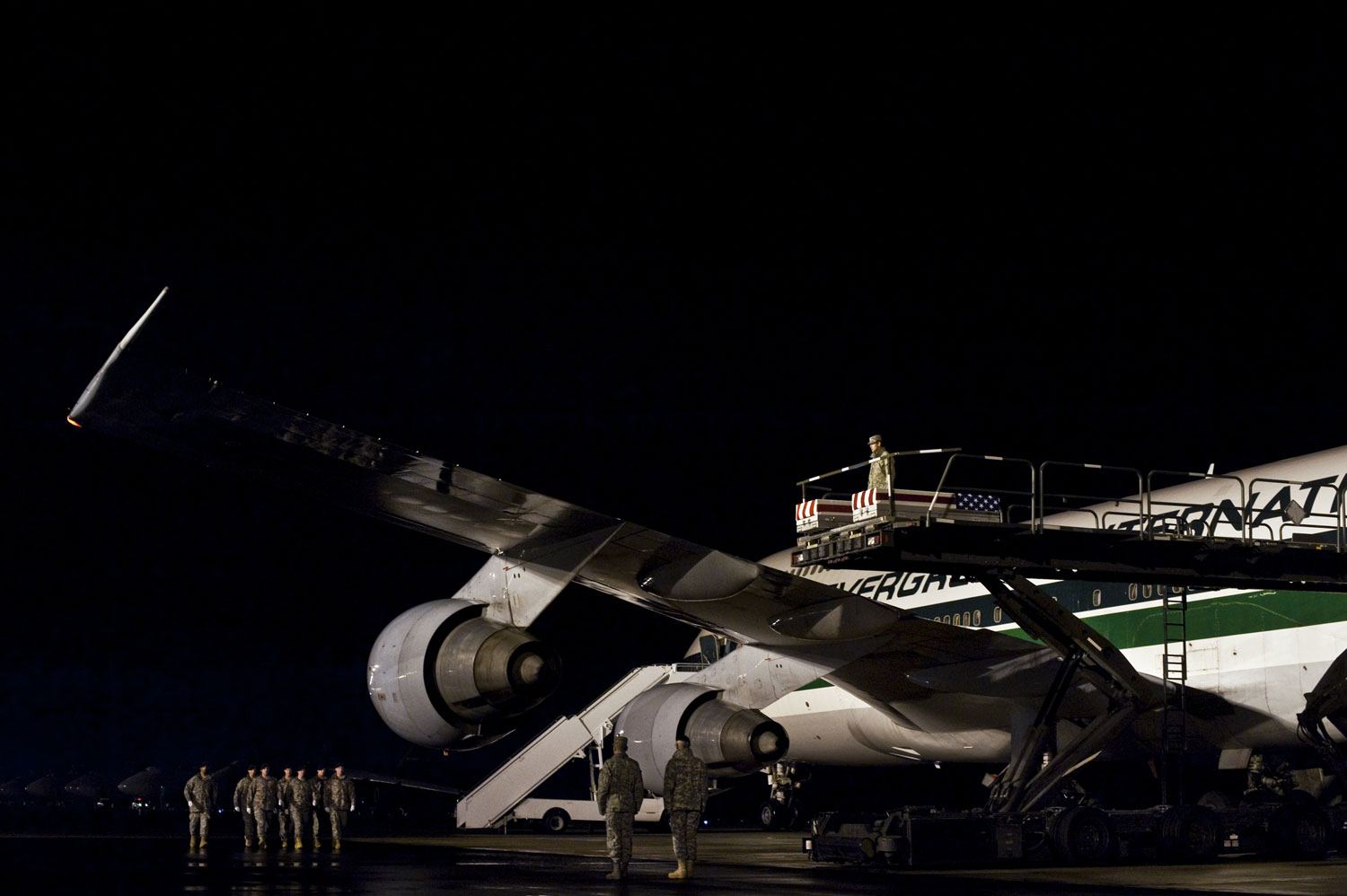
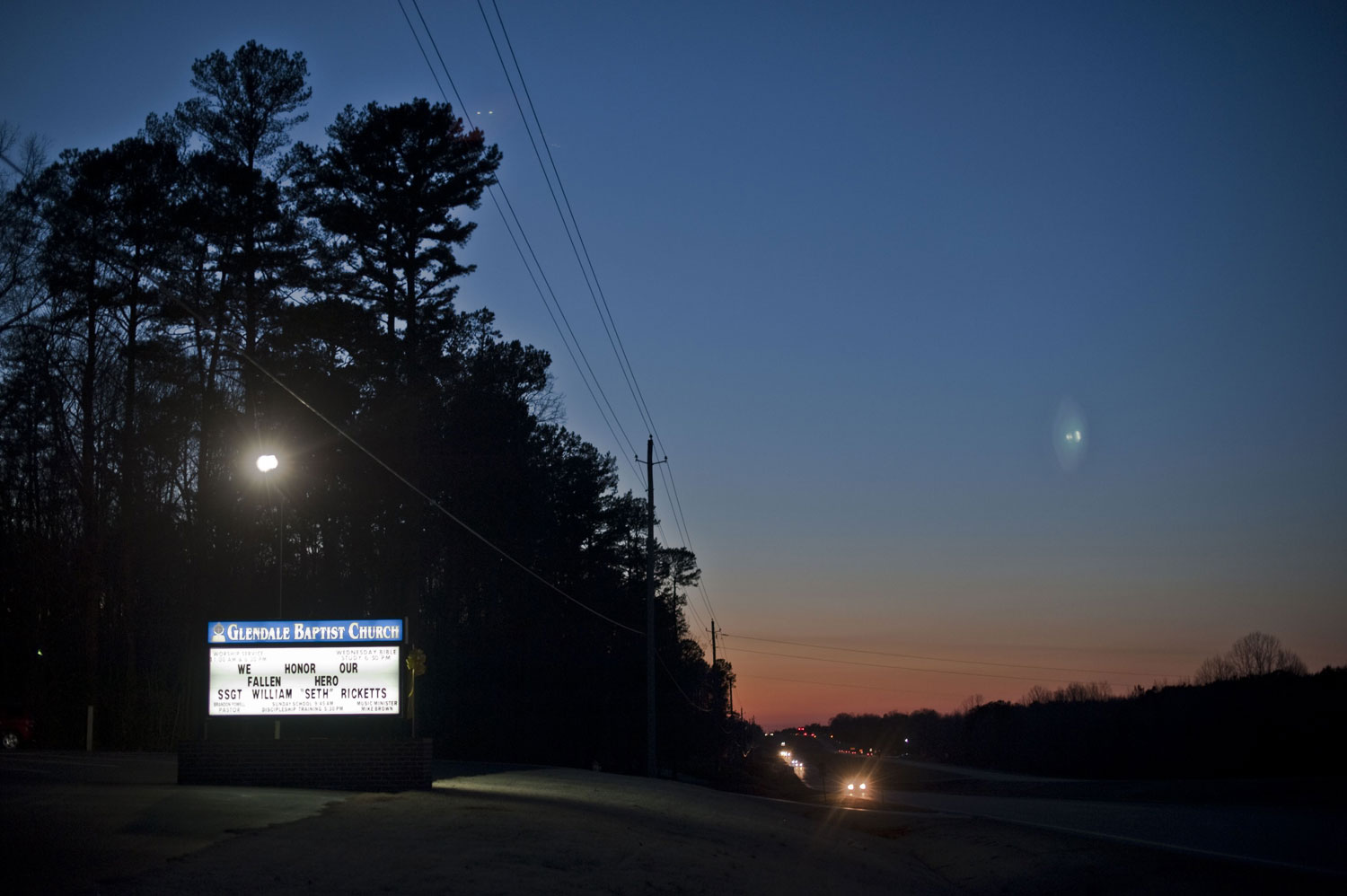
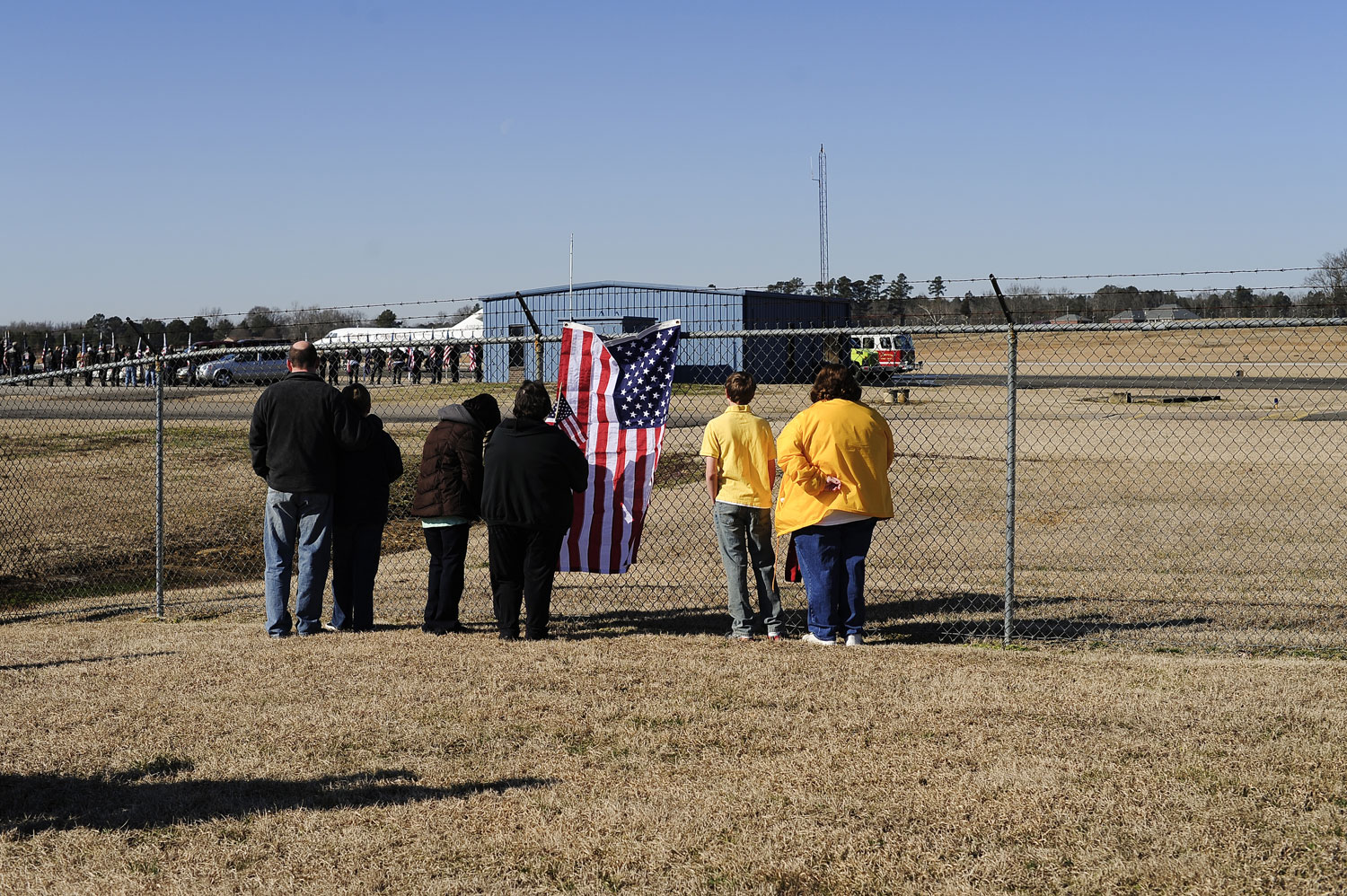
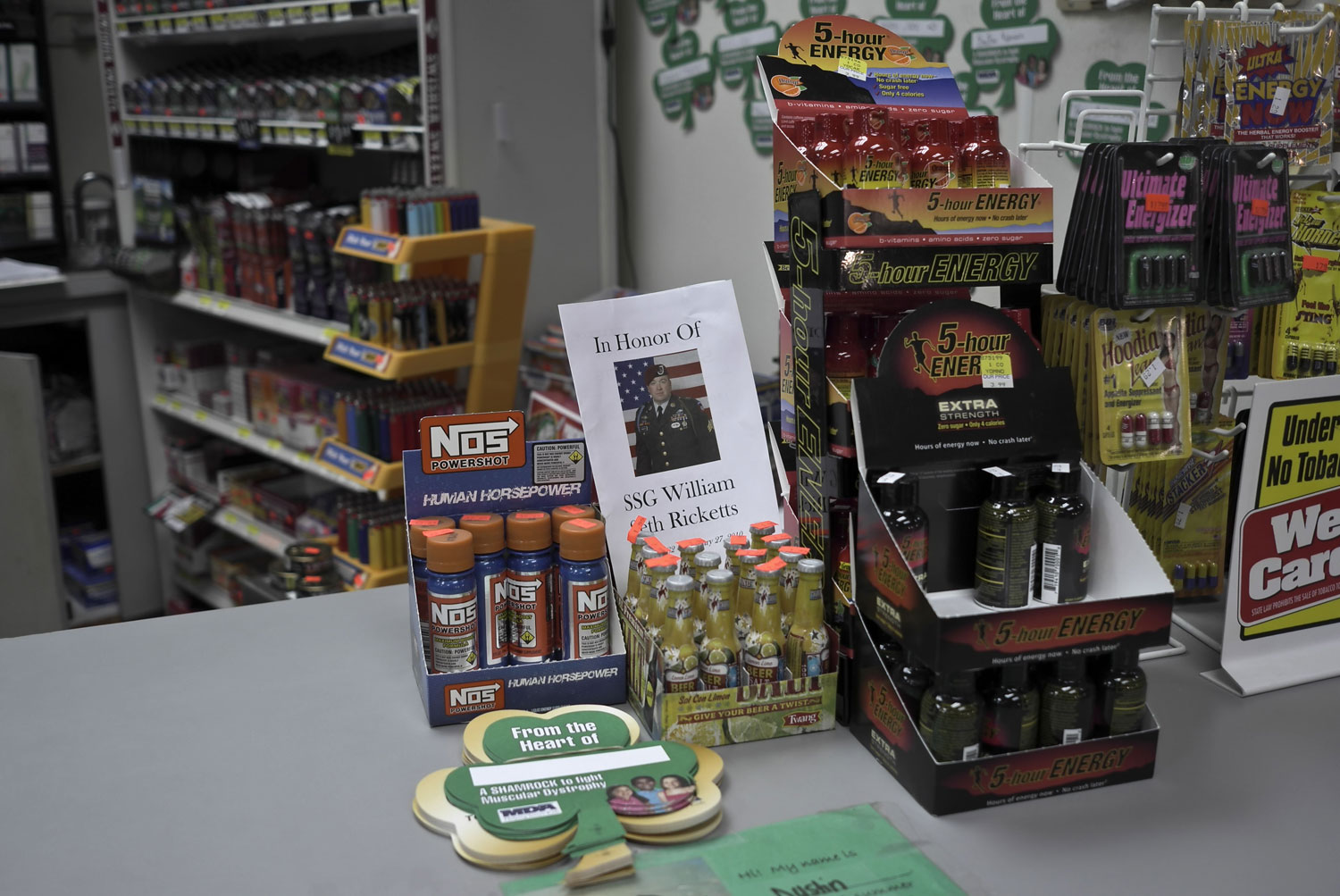
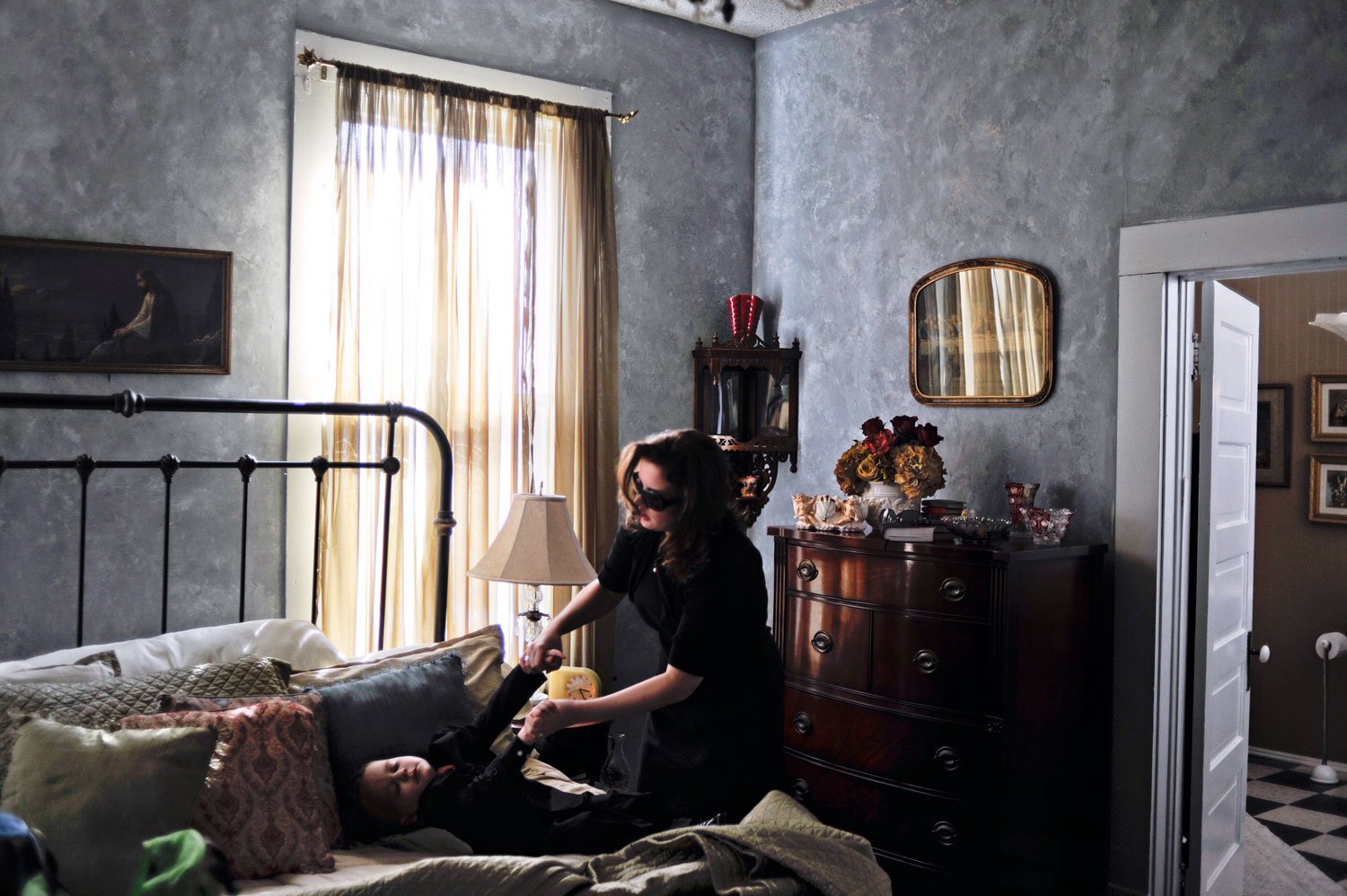
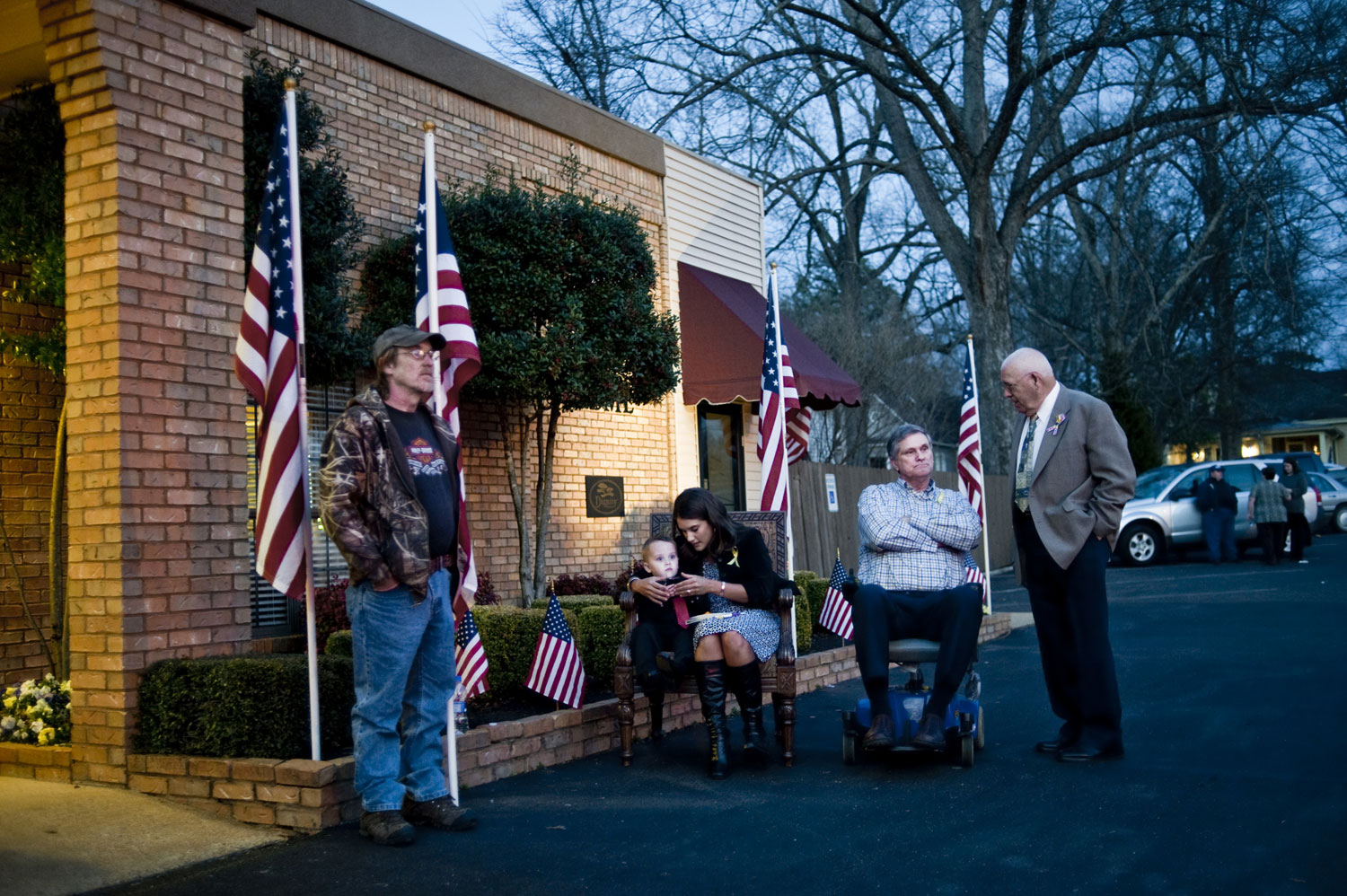
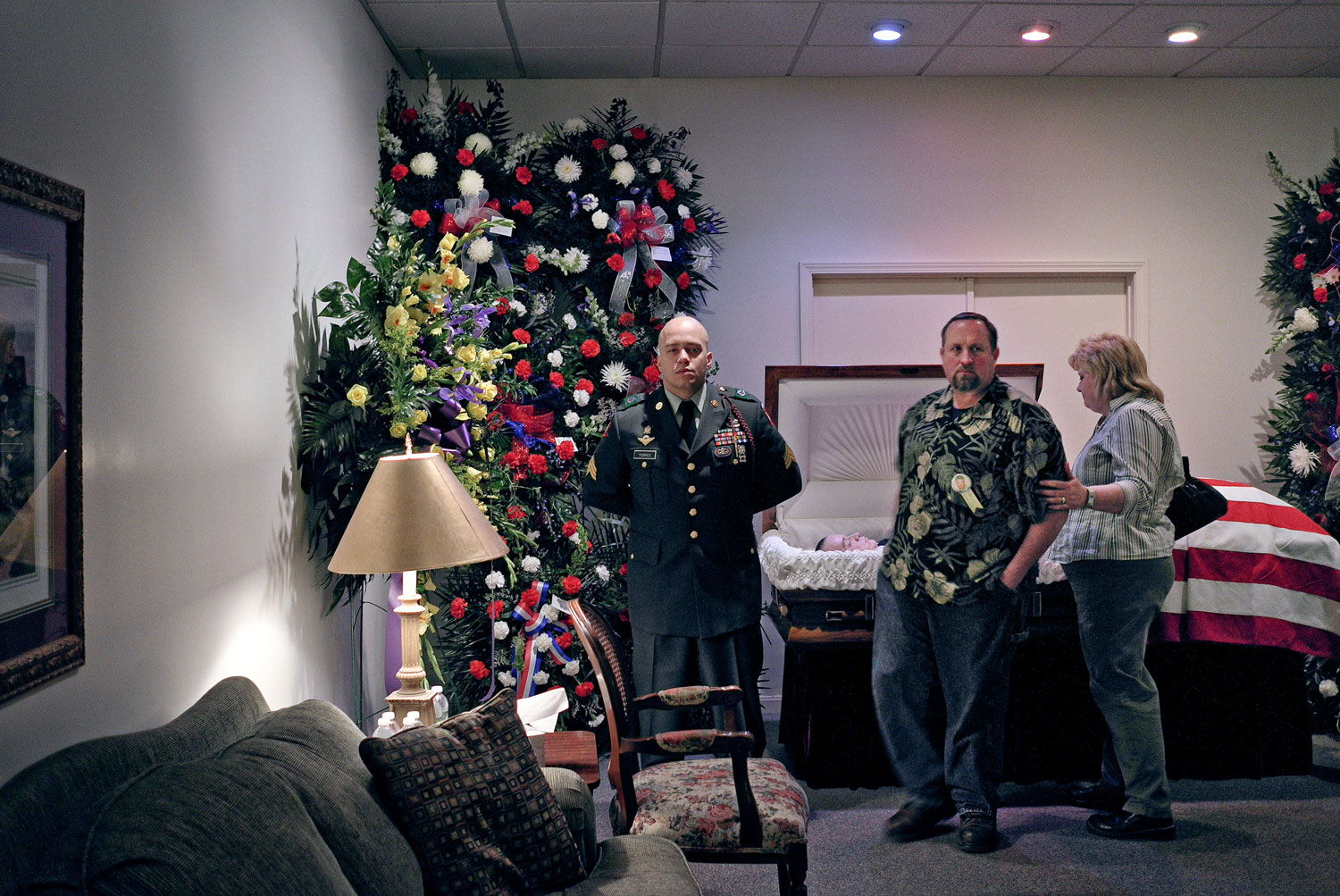
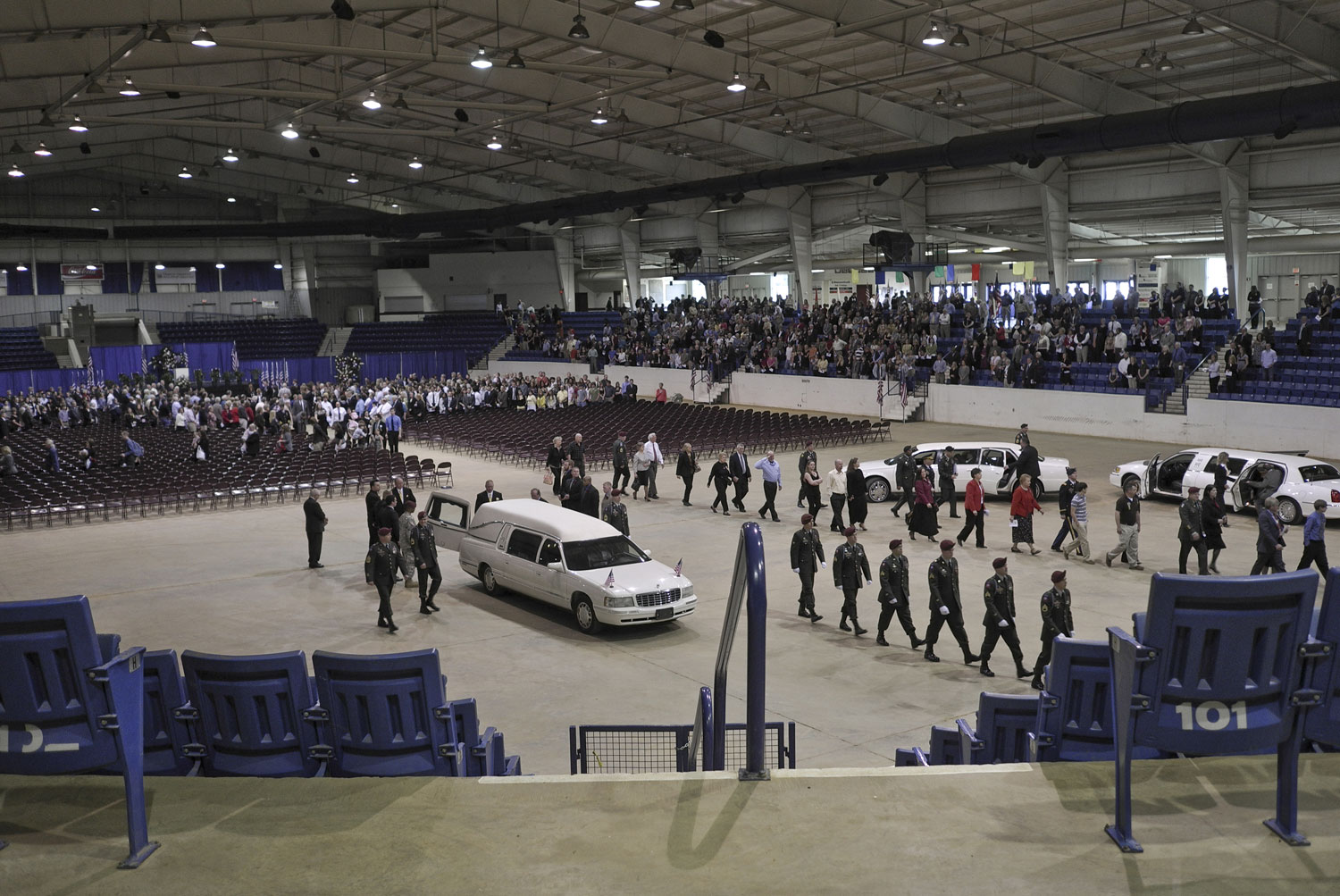
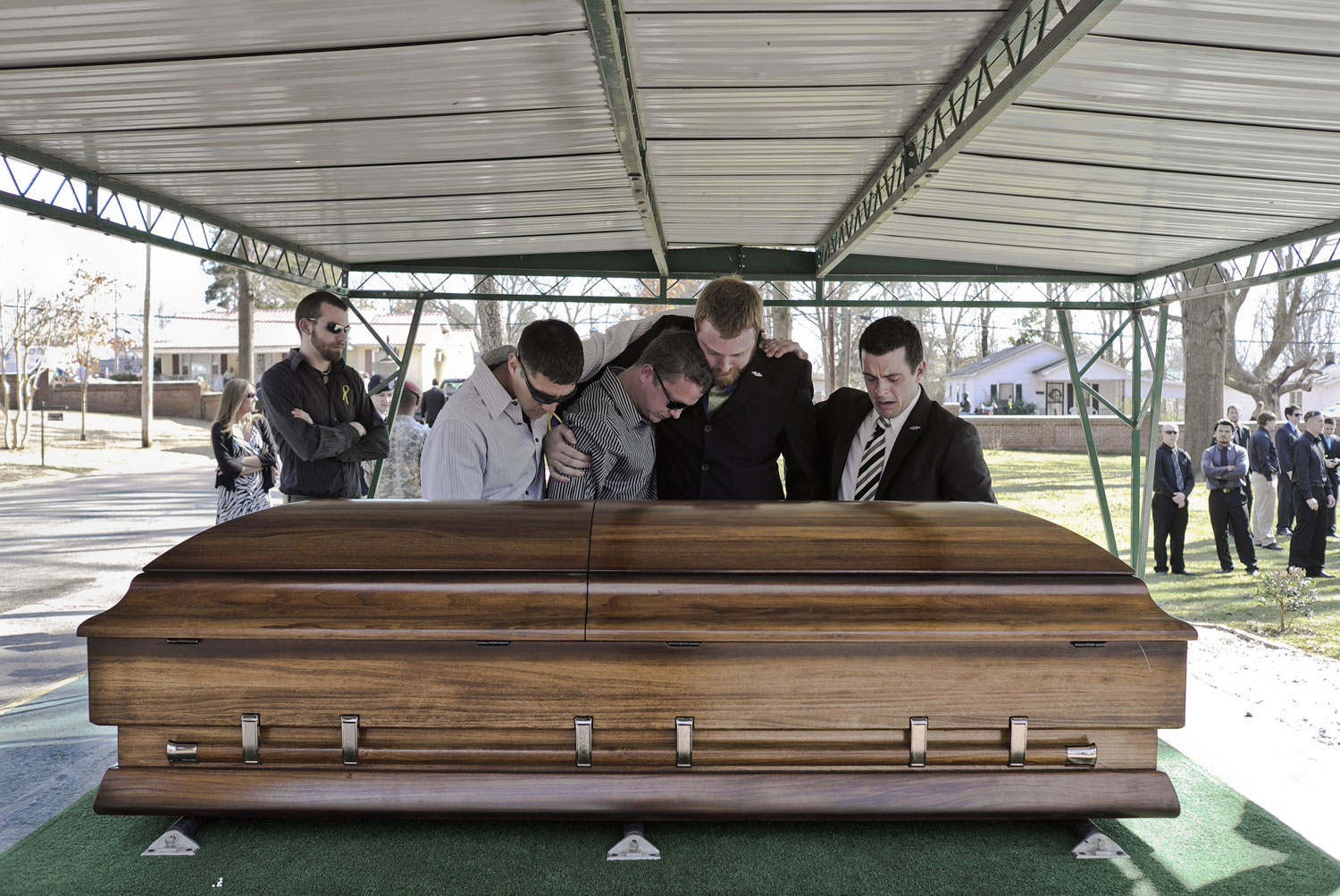
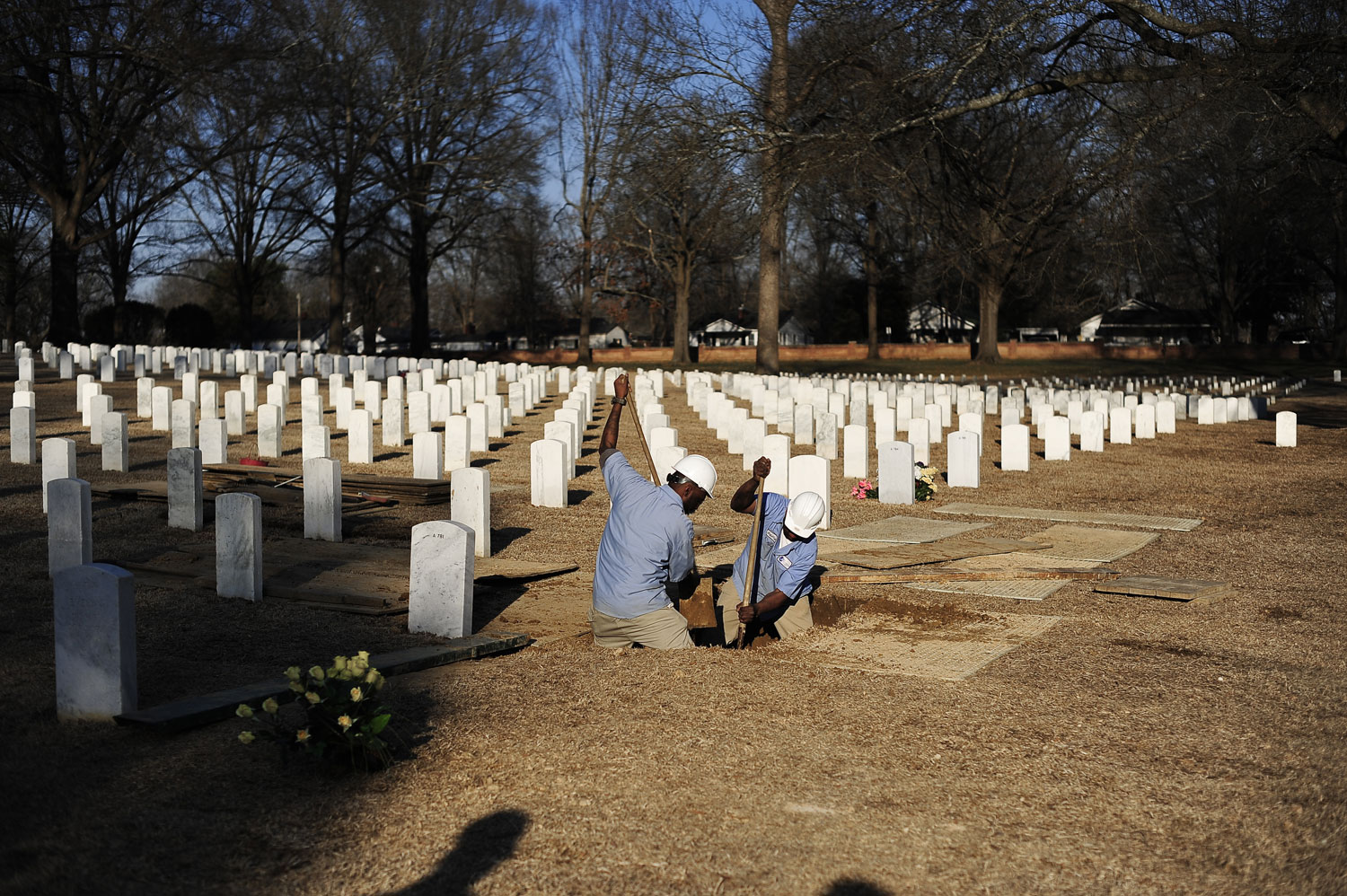
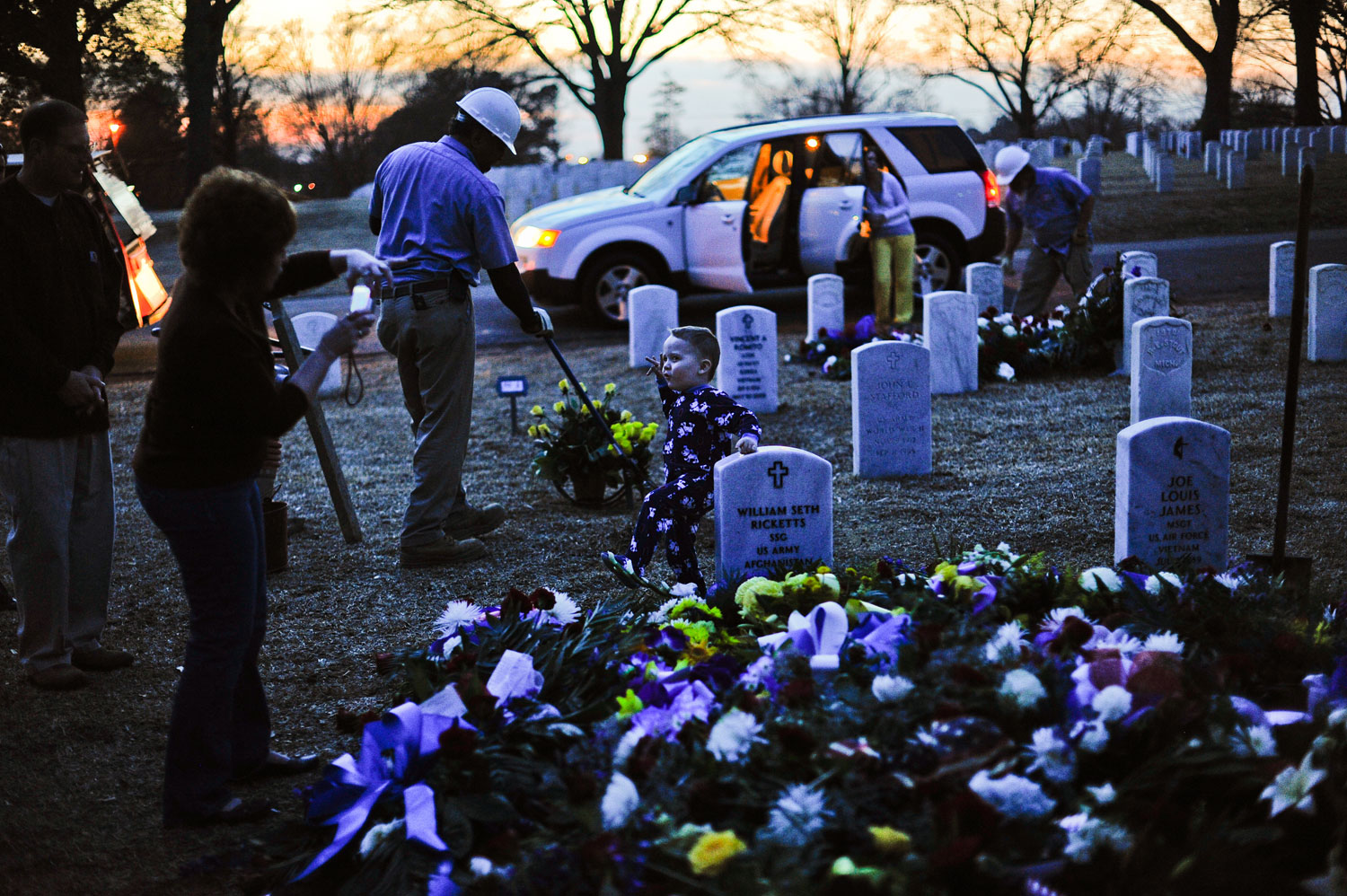
More Must-Reads from TIME
- Cybersecurity Experts Are Sounding the Alarm on DOGE
- Meet the 2025 Women of the Year
- The Harsh Truth About Disability Inclusion
- Why Do More Young Adults Have Cancer?
- Colman Domingo Leads With Radical Love
- How to Get Better at Doing Things Alone
- Michelle Zauner Stares Down the Darkness
Contact us at letters@time.com